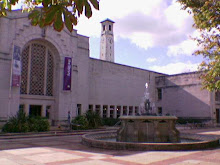March was being a lamb for this meeting, before turning into a polar bear! But we began by looking back to earlier meetings when we were looking at Carol Rumens’ sestina. The form itself caused much interest but we had not considered its origins. They are:
That the invention of the sestina form is usually attributed to Arnaut Daniel (fl.1190) and it was then widely practised by other Occitan poets, and later by renaissance poets in Italy. A version with rhyme in the first stanza was developed in France in the 16thC. Swinburne and Ezra Pound experimented with the form.
As always, we enjoyed a wide variety of poems and agreed that next time (April) our topic will be ‘pictures’
That the invention of the sestina form is usually attributed to Arnaut Daniel (fl.1190) and it was then widely practised by other Occitan poets, and later by renaissance poets in Italy. A version with rhyme in the first stanza was developed in France in the 16thC. Swinburne and Ezra Pound experimented with the form.
On to our poems for the afternoon. These included Vernon Scannell’s ‘Legs’ a poem full of interesting imagery, but also having a slightly troubling feel to it. Roger McGough amused as usual with ‘A Good Poem’. John Donne’s Satyre II (an extract) was perhaps more poetically contorted that was really comfortable for a Saturday afternoon, but Edward Field’s ‘Mae West’ was certainly not, and prompted both discussion and distant recollections of the star on scene. ‘Our Photograph’ by Frederick Locker-Lawson teased and amused, and slightly surprised with its final choice of vocabulary. Eleanor Farjeon’s ‘Mrs Malone’ challenged us to feel emotionally engaged with the eponymous character, but as it turned out, we felt the pathos less than the sense of a folk-tale motif, but we all enjoyed the poem. ‘Leaving the Tate’, by Fleur Adcock, provoked a lot of comment as it intersects with visual art and manages to question our perception of all forms of art. We were also introduced to the work of an Estonian poet Bernard Kangro. His ‘Frogs’ from the collection Earthbound, posed a few problems, not least the image of the blue crown. A basic search shows that the Estonian flag is bands of Blue, Black and White, and the shade of blue is officially ‘cornflower blue’, as the cornflower is the national flower. In the absence of this knowledge, it was suggested that the image of the frogs with blue crowns on their heads was reminiscent of the Frog Prince of fairy tales, just waiting for the transformative kiss.
As always, we enjoyed a wide variety of poems and agreed that next time (April) our topic will be ‘pictures’


No comments:
Post a Comment